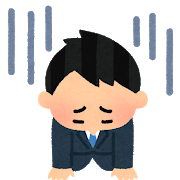What is the difference between a part(ぱーと) and Arbeit(あるばいと)?

Japanese people often say, "I'm going to work part-time(ぱーとに行きます). I'm going to work part-time(あるばいとに行きます)."
There is no legal difference between part(ぱーと) and Arbeit(あるばいと).
Japanese people often refer to part-time workers as part(ぱーと) and Arbeit(あるばいと), but there is no strict difference.
There is no legal distinction between ぱーと and あるばいと workers, and both are legally classified as "part-time workers." Part-time workers are "workers whose regular working hours per week are shorter than those of regular employees employed at the same place of business."
So how do Japanese people use the word properly?
あるばいと
Students such as high school students and college students whose main business is studying, and young part-time workers, called "あるばいと" the work to make money,
Almost all Japanese people assume that あるばいと = young people teens to 20s such as students".
The etymology of part-time jobs is said to be "arbeit", which means work or work in German.
ぱーと
ぱーと is an abbreviation for "part-time" in English.
It usually means people who work in a shorter time than regular employees. Housewife (housewife) is common as a person who works only during the daytime on weekdays and during the daytime when spouses and children go out. Therefore, it is mostly used to mean "part-time = housewife (housewife) works by utilizing free time".
ぱーと / あるばいと workers are classified as part-time workers and are protected by part-time labor law.


